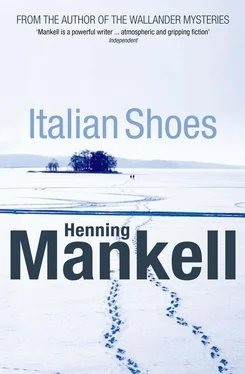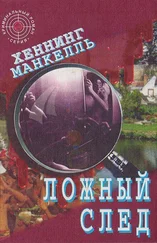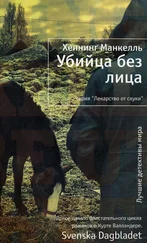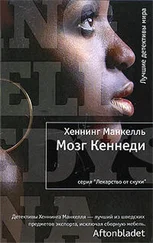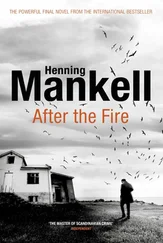One room was filled with wooden lasts, stacked on shelves from floor to ceiling. Each pair had a name label hanging from it. Louise pulled several lasts out and I was amazed when I read the names. Giaconelli had made shoes for American presidents, now dead; but their lasts were still here. There were conductors and actors, and people who’d achieved notoriety, for good reason or bad. It was a bewildering experience to make one’s way through all these famous feet. It was as if the lasts themselves had struggled through snow and swamp so that the master I still hadn’t met would be able to make his marvellous shoes.
‘Two hundred individual operations,’ said Louise. ‘That’s what’s needed to make just one shoe.’
‘They must be extremely expensive,’ I said. ‘When shoes are elevated to the level of jewels.’
She smiled.
‘Giaconelli owes me a favour. He’ll be pleased to reciprocate.’
Reciprocate.
When had I last heard anybody use that word in a context like that? I couldn’t remember. Perhaps people who live in the depths of the forest use language in a different way? Perhaps people who live in big cities chase down words as if they were outlaws?
We continued to make our way through the old cottage. There were lasts and tools everywhere, and one room smelled strongly of the tanned hides piled up on simple trestle tables.
The opera had reached its finale. The old floorboards creaked as we walked over them.
‘I hope you’ve washed your feet,’ said Louise as we came to the final door, which was closed.
‘What will happen if I haven’t?’
‘Giaconelli won’t say anything, but he will be disappointed even if he doesn’t show it.’
She knocked on the door, and opened it.
At a table with neat rows of tools sat an old man hunched over a last partly covered by leather. He wore glasses, and was completely bald apart from a few strands of hair at the back of his head. He was very thin, one of those persons who give the impression of being more or less weightless. There was nothing in the room apart from that table. The walls were bare, there were no shelves containing lasts, nothing but naked wooden walls. The music had come from a radio set standing on one of the window ledges. Louise leaned over and kissed the old man on the top of his bald pate. He seemed to be delighted to see her, and carefully slid to one side the brown shoe he was making.
‘This is my father,’ said my daughter. ‘He’s come back after all these years.’
‘A good man always comes back,’ said Giaconelli. He had a thick accent.
He stood up and shook hands.
‘You have a beautiful daughter,’ he said. ‘She’s also an excellent boxer. She laughs a lot, and helps me whenever I need help. Why have you been hiding yourself away?’
He was still grasping my hand. His grip became even tighter.
‘I haven’t been hiding away. I didn’t know that I had a daughter.’
‘Deep down, a man always knows if he has a child or not. But you have turned up. Louise is happy. That’s all I need to know. She’s been waiting for long enough for you to come walking through the forest to visit her. Perhaps you’ve been on your way all these years without realising it? It’s just as easy to lose your way inside yourself as it is to get lost in the woods or in a city.’
We went to Giaconelli’s kitchen. Unlike his ascetic workshop, it was cluttered with all shapes and sizes of pans, dried herbs, bunches of garlic hanging from the ceiling, paraffin lamps and rows of jars with spices squeezed on to beautifully carved shelves. In the middle of the floor was a large, heavy table. Giaconelli noticed me looking at it, and stroked his hand over the smooth surface.
‘Beech,’ he said. ‘The marvellous wood from which I make my lasts. I used to get my timber from France. It’s not possible to make lasts from any other kind of wood: beech trees grow in rolling countryside, tolerate shade, and are not affected by big and unexpected variations in climate. I always used to choose personally which trees were going to be felled. I would pick them out two or three years before I needed to replenish my stocks. They were always felled during the winter and chopped into lengths of six feet, never any more, and were stored outdoors for long periods. When I moved to Sweden I found a supplier in Skåne. I’m too old now to raise the strength to drive down south to pick out individual trees myself. I find that very sad. But then, I make fewer and fewer lasts nowadays. I prowl round in my house and wonder how much longer I shall carry on making shoes. The man who chooses which trees to cut down for me presented me with this table when I celebrated my ninetieth birthday.’
The old master invited us to sit down, and produced a bottle of red wine in a raffia sleeve. His hand shook as he filled our glasses.
‘A toast to the father who turned up!’ he said, raising his glass.
The wine was very good. I realised I had been missing something during the years I had spent alone on my island: drinking wine with friends.
Giaconelli began telling remarkable stories about all the shoes he had made over the years, about customers who kept coming back for more, and their children who would turn up at his door after their parents had passed on. But most of his stories were about all the feet he had seen and measured before making his lasts, and how my feet would have already carried me for approaching 120,000 miles. About the significance of the ankle bone — talus — for the strength of a foot. He fascinated me by speaking about the apparently insignificant little cuboid bone — os cuboideum . He seemed to know everything there was to know about the bones and muscles of the foot. I recognised much of what he talked about from my days as a medical student — such as the incredibly ingenious anatomical constructions; how all muscles in the foot are short in order to give strength, endurance and flexibility.
Louise said she wanted Giaconelli to make a pair of shoes for me. He nodded sagely, and stared at my face for several seconds before turning his interest to my feet. He slid to one side an earthenware dish of almonds and other nuts, and asked me to stand on the table.
‘Please take off your shoes and socks. I know some modern shoemakers measure feet with socks on, but I’m old-fashioned. I want to see the naked foot, nothing else.’
It had never occurred to me that I would ever have somebody measuring my foot in order to make me a pair of shoes. Shoes were something you tried on in a shop. I hesitated, but removed my worn-out shoes, took off my socks and clambered on to the table. Giaconelli looked at my shoes with a worried expression on his face. Louise had evidently been present before on occasions when the Italian had measured people’s feet for shoes, as she withdrew into an adjacent room and returned with some sheets of paper, a clipboard and a pencil.
It was like going through a rite. Giaconelli examined my feet, stroked them with his fingers, and then asked if I was feeling well.
‘I think so.’
‘Are you completely healthy?’
‘I have a headache.’
‘Are your feet in good order?’
‘Well, they don’t hurt at least.’
‘They’re not swollen?’
‘No.’
‘The most important thing when making shoes is to measure the feet in calm circumstances, never at night, never in artificial light. I only want to see your feet when they are in good condition.’
I was beginning to wonder if I was the object of a practical joke. But Louise seemed completely serious, and was ready to start making notes.
It took Giaconelli over two hours to complete his examination of my feet, and to compile a list of the various measurements needed for the creation of my lasts, and thereafter of the shoes my daughter was keen to present me with. During those two hours, I learned that the world of feet is more complicated and comprehensive than one might think. Giaconelli spent ages searching for the theoretical longitudinal axis dictating whether my left or right foot pointed outwards or inwards. He checked the shape of the ball of each foot, and the instep, and investigated to see if I had any characteristic deformations: was I flat-footed, was either of my little toes unduly prominent, were my big toes higher than usual, so-called hammer toes? I gathered that there was one golden rule that Giaconelli followed meticulously: the best results were achieved using the simplest of measuring instruments. He restricted himself to two shoe heels and a shoemaker’s tape measure. The tape measure was yellow and had two different calibration scales. The first scale was used to measure the foot in old French stitches, each one equal to 6.66 millimetres. The other one measured the width and circumference of the foot, using the metric system, in centimetres and millimetres. Giaconelli also used an ancient set square, and when I stood on the sheet of indigo paper he drew a line round my feet using a simple pencil. He talked all the time, just as I recalled the older doctors doing when I started training as a surgeon — constantly describing exactly what they were doing and commenting on every incision, the blood flow, and the general condition of the patient. As he was drawing an outline of my feet, Giaconelli explained that the pencil must be held at exactly ninety degrees to the paper: if the angle was less than this, he elaborated in his heavily accented Swedish, the shoes would be at least one size too small.
Читать дальше
